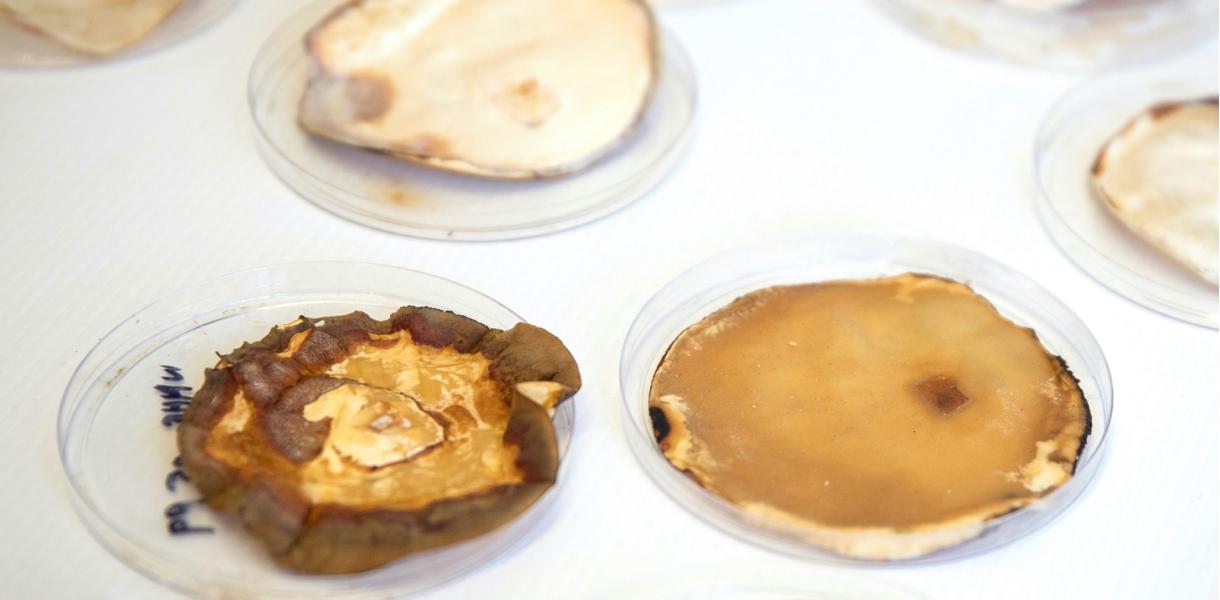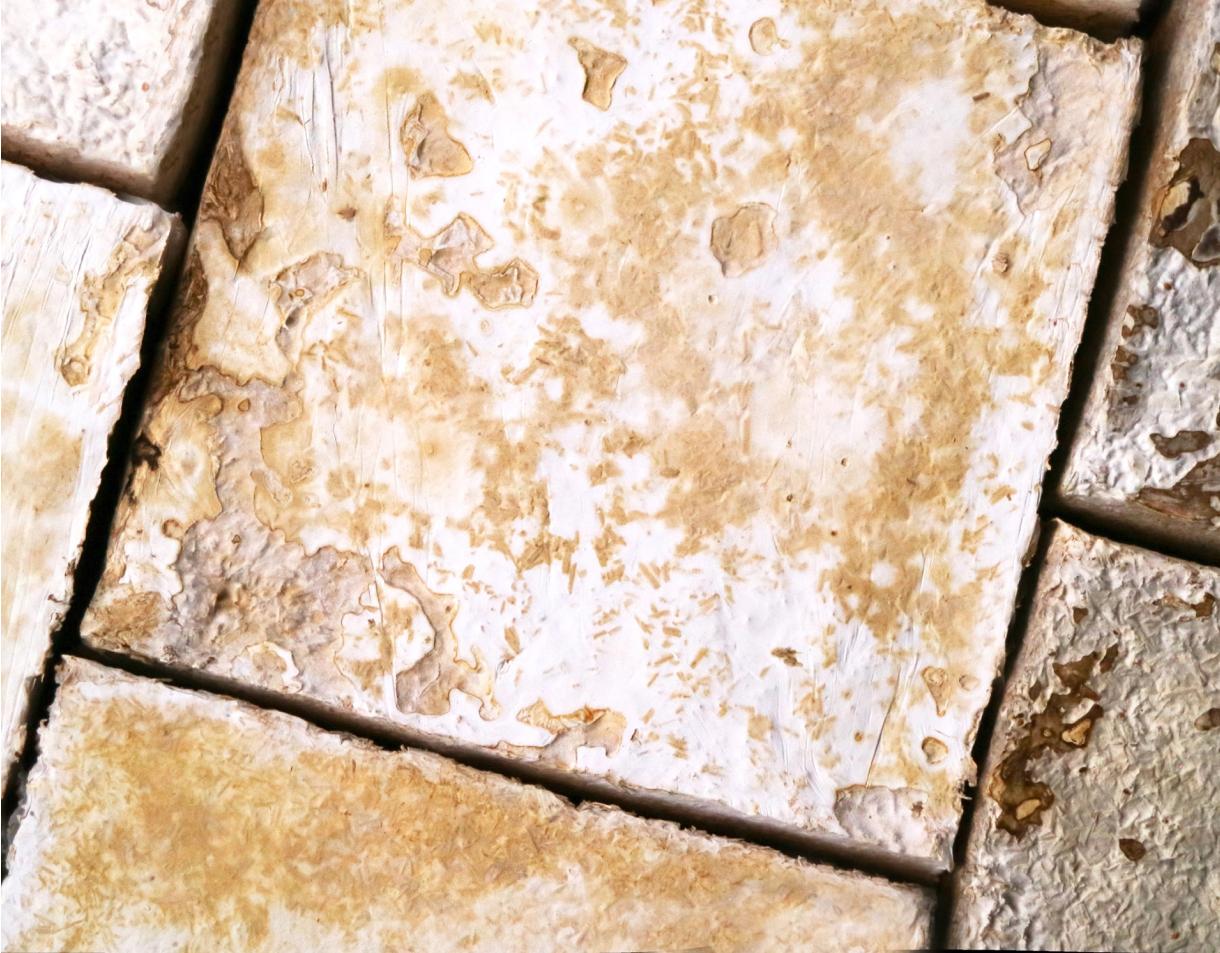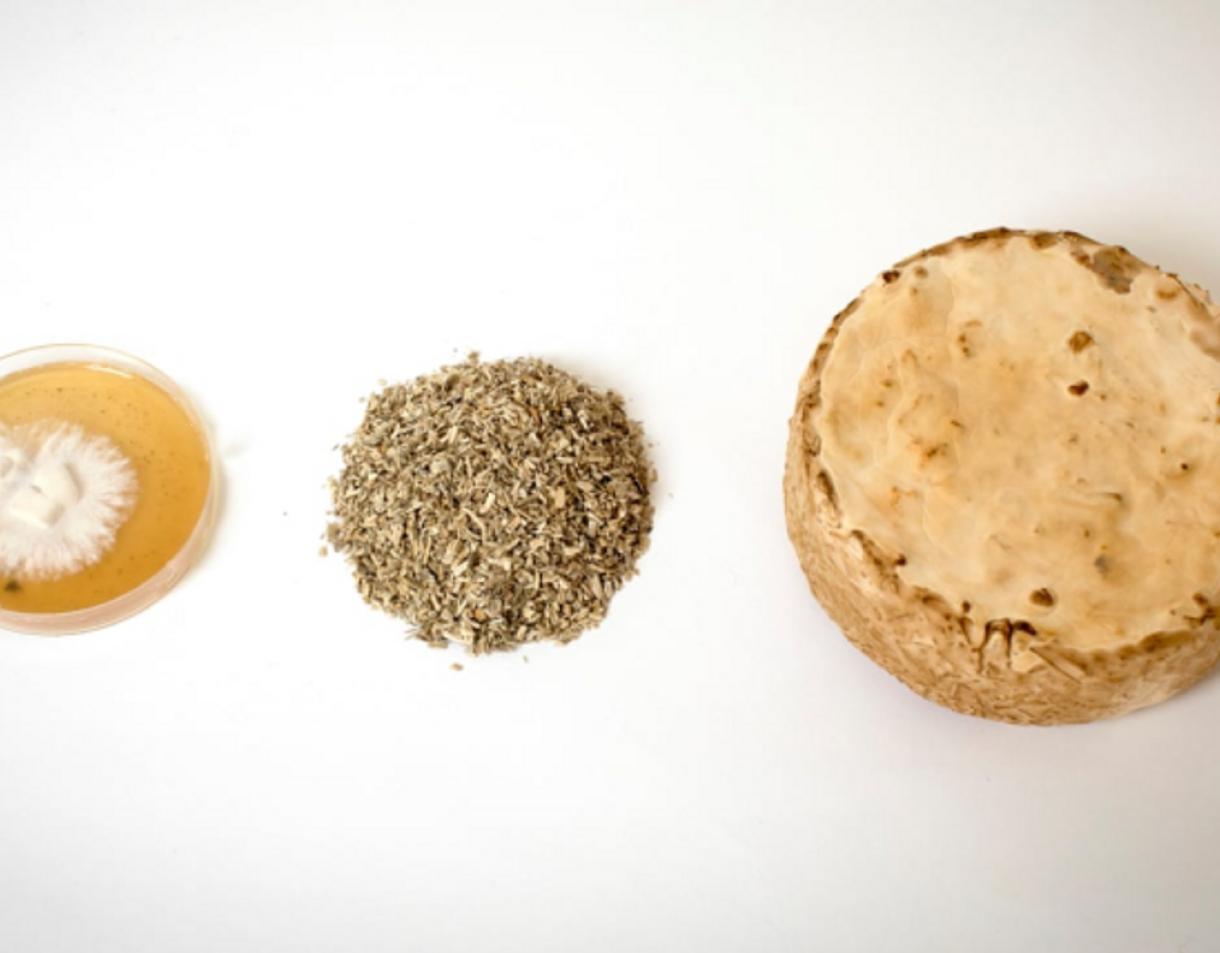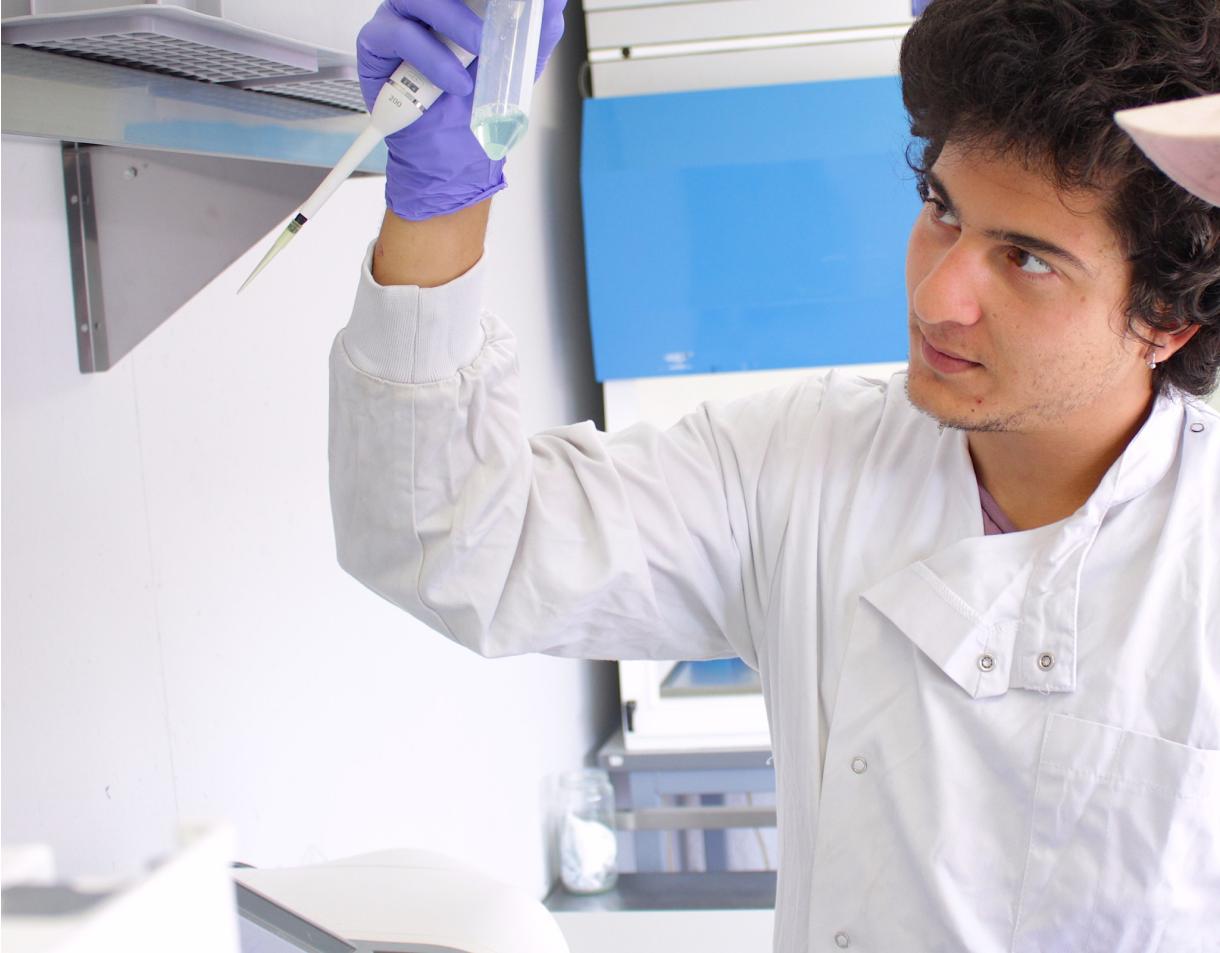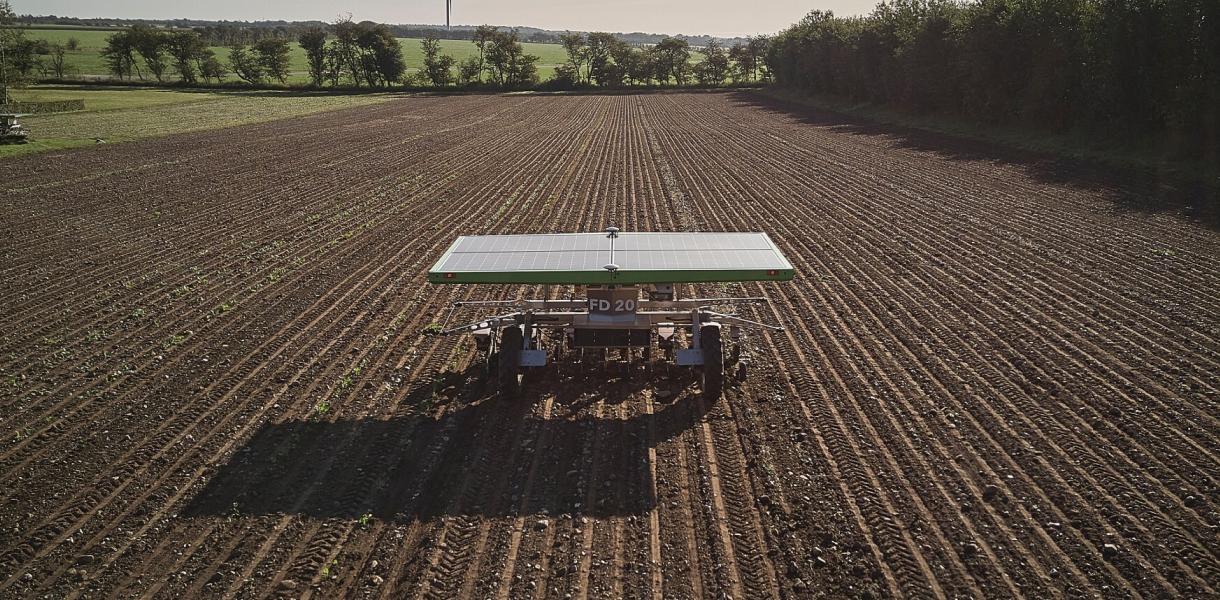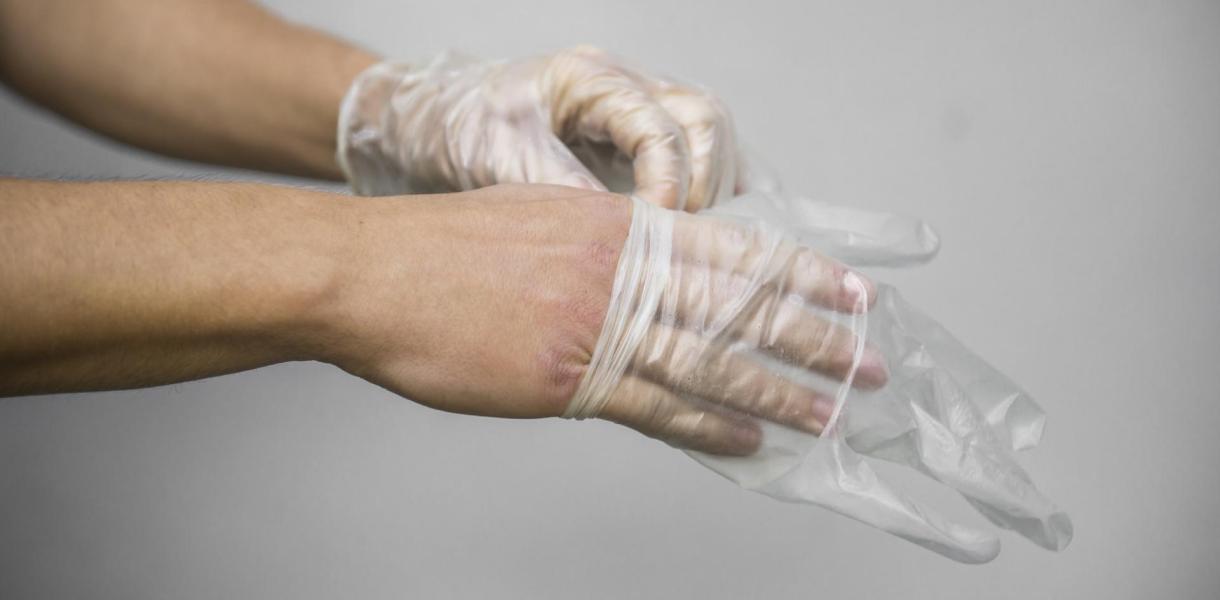What’s the design in a nutshell?
Environmentally regenerative and natural insulation grown from mycelium: the root network of mushrooms.
Why is it needed?
The building industry is one of the industries with the largest environmental footprints in the world, with limited recycling and often harmful side effects for workers. Sustainable insulation is drastically needed, both in cool and warm climates, to lower operational energy consumption, reduce material pollution, and ensure we limit our overall impact on the Earth.
How does it work?
Fungi are truly wondrous organisms with significant untapped potential. We know them as tasty treats on our plates but are fantastic raw, sustainable materials for a variety of uses. Biohm works with over 300 different strains of mycelium to create sustainable alternatives to some of the construction industry’s most damaging materials. They’ve now produced/grown a mycelium insulation panel that will be the world’s first accredited mycelium insulation product.
The design of the materials is largely driven by the natural world where the concept of waste is non-existent and all that perishes becomes food for new life. The team has integrated this philosophy into their mycelium insulation product and grew the panels on organic and synthetic by-products. At the end of the product's life, it can be returned back into Biohm’s biomanufacturing processes or safely cold composted to enrich the soil.
"Biohm is in the process of establishing the world's first mycelium insulation biomanufacturing facility."
How does it improve life?
Biohm’s Mycelium Insulation products not only serve to disrupt the construction industry but pave the way for other mycelium-based goods. The material has proven to be a robust alternative to non-biodegradable materials, for everything from furniture to fashion. These products have high shock resistance, a good protective value and can be produced with minimal resources.
What’s the impact to date?
Biohm is in the process of establishing the world's first mycelium insulation biomanufacturing facility (Biomill Watchet) in collaboration with a community-based social enterprise. This facility pioneers a unique business model focused on social justice and regeneration, as well as positive environmental and economic impact. All profits from the Biomill will be shared with the local community, providing it with agency and resilience.
At the initial scale of the Biomill, they’ll produce 3,000 square meters of mycelium insulation per month and when scaled up, each Biomill will produce enough insulation for 120 homes per month, which will consume around 240 tonnes of 'waste' and sequester up to 30 tonnes of carbon, which is equivalent to the monthly carbon sequestration of almost 20,000 trees.
